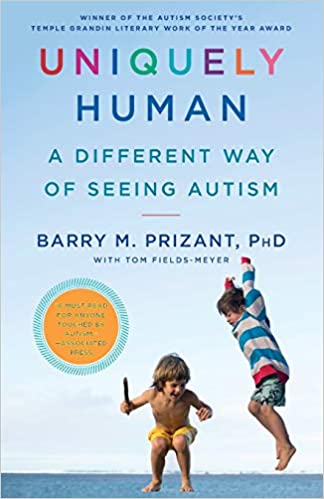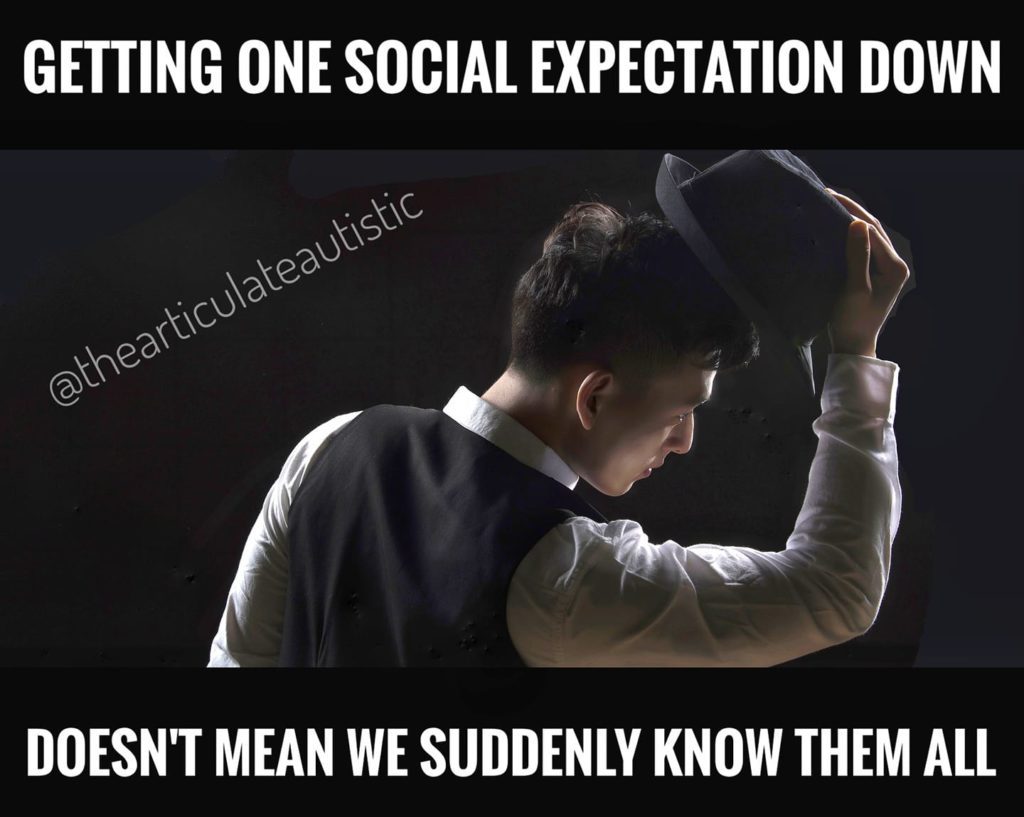“You’re Not Even Trying!” – Please Don’t Say This to Autistic People

“You’re not even trying!!”
This is one of the more painful, frustrating, and untrue things you can say to an autistic person when you are trying to teach or explain something to us.
Not trying? No, no, no. Trying is what we do every moment of every day.
We are trying to block out the noise, trying to block out the light, trying to focus on what you’re saying amidst a sea of background noise and our own thoughts, trying to remember to put our faces into acceptable positions based on what you’re saying, trying to police the tone of our voice, trying to walk with what would be considered a “typical”, unobtrusive gait without crashing into something…the list goes on.
(Article continues below.)
The best way to improve communication with your autistic loved one is to understand how your autistic loved one’s mind works! Intentions, motivations, and personal expressions (facial expressions or lack thereof, body language, etc.), are often quite different in autistic people than they are in neurotypical people.
Experience a better understanding of your autistic loved one by reading books about life from an autistic perspective as well as stories that feature autistic characters. You’ll have so many “Ah ha!” moments and start seeing your autistic loved one in a different light (and you’ll have a better understanding of their behaviors, which you may have been misinterpreting up until now).
Books I recommend for a better understanding of your autistic loved one:
And…while we are doing every single one of those things manually (non-autistic people do them on autopilot), we also have to listen to and understand your instructions/request while translating it into our own language, and try to carry out said task fast enough so you don’t become irritated with us (negating every single thing you’ve said up until that point because many of us respond to irritation as a threat to our survival, and therefore, fight or flight kicks in, and we forget EVERYTHING you just said).
And, even if the person explaining doesn’t get irritated and trigger us, we’re often expected to remember the lesson or request after our first and only exposure to it…which is not possible for many of us.
Not trying? That is literally all we do.
Please consider that the next time you go to say that to the autistic or otherwise neurodivergent person in your life.
Follow me on Instagram.
Want downloadable, PDF-format copies of these blog posts to print and use with your loved ones or small class? Click here to become a Patreon supporter!








